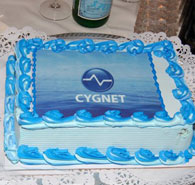 It’s been a few months, and it’s been a total whirlwind here at EEG Info so let me try to remember all the way back to November for a moment. It seems like a year ago now, but that was about the time when all of us here at EEG Info held our breath as we put Cygnet out to you, our Neurofeedback community. We ordered 100 extra NeuroAmps, on top of our regular inventory, just to prepare for the rush that we hoped to get. We knew we had created something that fit our training model, that was easy to use, beautiful to look at, and functionally the most advanced design we have ever built. But what about you — the customer? Would you find it as intuitive, useful and appealing as we designed it to be? Would anyone actually appreciate all this hard work and huge amounts of money and energy and risk that went into the creation of this product? (more…)
It’s been a few months, and it’s been a total whirlwind here at EEG Info so let me try to remember all the way back to November for a moment. It seems like a year ago now, but that was about the time when all of us here at EEG Info held our breath as we put Cygnet out to you, our Neurofeedback community. We ordered 100 extra NeuroAmps, on top of our regular inventory, just to prepare for the rush that we hoped to get. We knew we had created something that fit our training model, that was easy to use, beautiful to look at, and functionally the most advanced design we have ever built. But what about you — the customer? Would you find it as intuitive, useful and appealing as we designed it to be? Would anyone actually appreciate all this hard work and huge amounts of money and energy and risk that went into the creation of this product? (more…)
Archive for the ‘Commentary’ Category
Comparison Shopping in Medicines
Tuesday, February 12th, 2008
 A few weeks ago the Economist Magazine offered up the lament that comparison shopping is very difficult to do when it comes to medications because the underlying studies have not been done. It is difficult enough for pharmaceutical companies to get new drugs past their regulatory hurdles via Randomized Controlled Trials against a placebo control. Once that goal has been reached, drug companies feel free to peddle their new medications at will, perhaps allowing the implicit assumption to be propagated that newer is better.
A few weeks ago the Economist Magazine offered up the lament that comparison shopping is very difficult to do when it comes to medications because the underlying studies have not been done. It is difficult enough for pharmaceutical companies to get new drugs past their regulatory hurdles via Randomized Controlled Trials against a placebo control. Once that goal has been reached, drug companies feel free to peddle their new medications at will, perhaps allowing the implicit assumption to be propagated that newer is better.
Only a few weeks after the appearance of this article (Jan 12th issue, p. 68), this very issue was brought to the front pages with the published finding that two newer anti-cholesterol drugs, Vytorin and Zetia, may not hold an advantage over older drugs, such as Zocor, that have gone off patent. (Vytorin is a combination of Zetia and Zocor.) In the immediate task of reducing cholesterol levels, Vytorin did appear to offer an advantage. But this numerical advantage did not seem to yield a clinical payoff in terms of reduced plaque buildup in coronary and carotid arteries. Also the trendlines were worse for heart attacks, strokes, and the incidence of associated medical procedures such as angioplasties and bypass operations. This deterioration did not reach statistical significance, but one had expected better on the basis of the cholesterol numbers. On balance, there did not seem to be any selective clinical benefit from using the more expensive new drugs. One could even go so far as to say that the basic cholesterol hypothesis was being called into question. (more…)
Parallel Universes
Tuesday, February 12th, 2008
 Sometimes we who work with neurofeedback have the impression of living in a parallel universe. We live with a view of reality that is attaining increasing confirmation via formal studies while at the same time becoming much more clinically effective, yet it is a view that appears to be almost completely disconnected from mainstream thinking. This state of affairs is not unfamiliar to people who have studied Thomas Kuhn’s “The Structure of Scientific Revolutions,” but it is still somewhat breathtaking to see how long the split between the old and new paradigms can persist in the real world. (more…)
Sometimes we who work with neurofeedback have the impression of living in a parallel universe. We live with a view of reality that is attaining increasing confirmation via formal studies while at the same time becoming much more clinically effective, yet it is a view that appears to be almost completely disconnected from mainstream thinking. This state of affairs is not unfamiliar to people who have studied Thomas Kuhn’s “The Structure of Scientific Revolutions,” but it is still somewhat breathtaking to see how long the split between the old and new paradigms can persist in the real world. (more…)
The Diving Bell and the Butterfly
Monday, December 31st, 2007 We have just seen the new movie, The Diving Bell and the Butterfly, which opened here recently in limited release. I had read the book some years ago because of its graphic telling of the story of locked-in syndrome. Jean-Dominique Bauby, editor of the French edition of Elle, had a brainstem stroke that left him entirely paralyzed except for movement in one eye. The other eye, bereft of episodic lavage, is sewn shut as he rages inside, unable to object.
We have just seen the new movie, The Diving Bell and the Butterfly, which opened here recently in limited release. I had read the book some years ago because of its graphic telling of the story of locked-in syndrome. Jean-Dominique Bauby, editor of the French edition of Elle, had a brainstem stroke that left him entirely paralyzed except for movement in one eye. The other eye, bereft of episodic lavage, is sewn shut as he rages inside, unable to object.
Initially I could not imagine how this story could be made into a movie. My point of comparison was the movie made of Dalton Trumbo’s book, “Johnny Got His Gun,” which is an ordeal to watch. A couple of favorable reviews overcame my natural resistance, and we were very much rewarded. A story like this must be told with some humor mixed in, and this one does so. The ham-fistedness of the French doctors; the friends who can’t find the right words to say; the fly that lands on his nose. Then there is the steadfastness and earnestness of the therapists, affronted when he tells them that he wishes simply to die. And there is the poignancy of the call from his mistress while the mother of his children is sitting in the room tending to him, and of the flashback to his giving his aging father a shave. (more…)
The Role of Amateurs in Science
Monday, November 19th, 2007 There is one field in which an extensive mutually beneficial relationship has existed between amateurs and professionals. It is in astronomy, and the phenomenon was recently taken up in Science Magazine by John Bohannon (Volume 318, 12 October 2007, pp 192-3). Significantly, this symbiosis is occurring in a science in which we have only limited ability to do experiments. Mostly the science is observational. Most of the scientific observations are specifically targeted and hypothesis-based. They are so numerous that time on the big observatories for each project is scarce and therefore precious. But there is another crucial aspect of astronomy that focuses on celestial events that are not predictable either in time or place. This is mostly where the amateurs come in. They represent a world-wide army of knowledgeable observers that is on watch every night around the globe. (more…)
There is one field in which an extensive mutually beneficial relationship has existed between amateurs and professionals. It is in astronomy, and the phenomenon was recently taken up in Science Magazine by John Bohannon (Volume 318, 12 October 2007, pp 192-3). Significantly, this symbiosis is occurring in a science in which we have only limited ability to do experiments. Mostly the science is observational. Most of the scientific observations are specifically targeted and hypothesis-based. They are so numerous that time on the big observatories for each project is scarce and therefore precious. But there is another crucial aspect of astronomy that focuses on celestial events that are not predictable either in time or place. This is mostly where the amateurs come in. They represent a world-wide army of knowledgeable observers that is on watch every night around the globe. (more…)

The Unlicensed Practitioner: Again
Thursday, May 29th, 2008“It is crucial for licensed professionals
to report lay neurofeedback practitioners to
state regulatory bodies as practicing psychology
and medicine without a license when they are
found to be offering services for medical,
psychiatric and psychological conditions.”
One might on a first reading gain the impression that lay practitioners meant such people as enthusiastic home users who at some point decided to hang out a shingle, but when Dr. Hammond was asked whether he was including such unlicensed people as Professor Barry Sterman, the original researcher of the field, he replied:
“If he is offering clinical services to the public for medical,
psychiatric and psychological problems, without holding a clinical
license, he would be in violation of the law in almost every state.”
(more…)
Posted in Commentary, Neurofeedback, Professional Issues | 13 Comments »